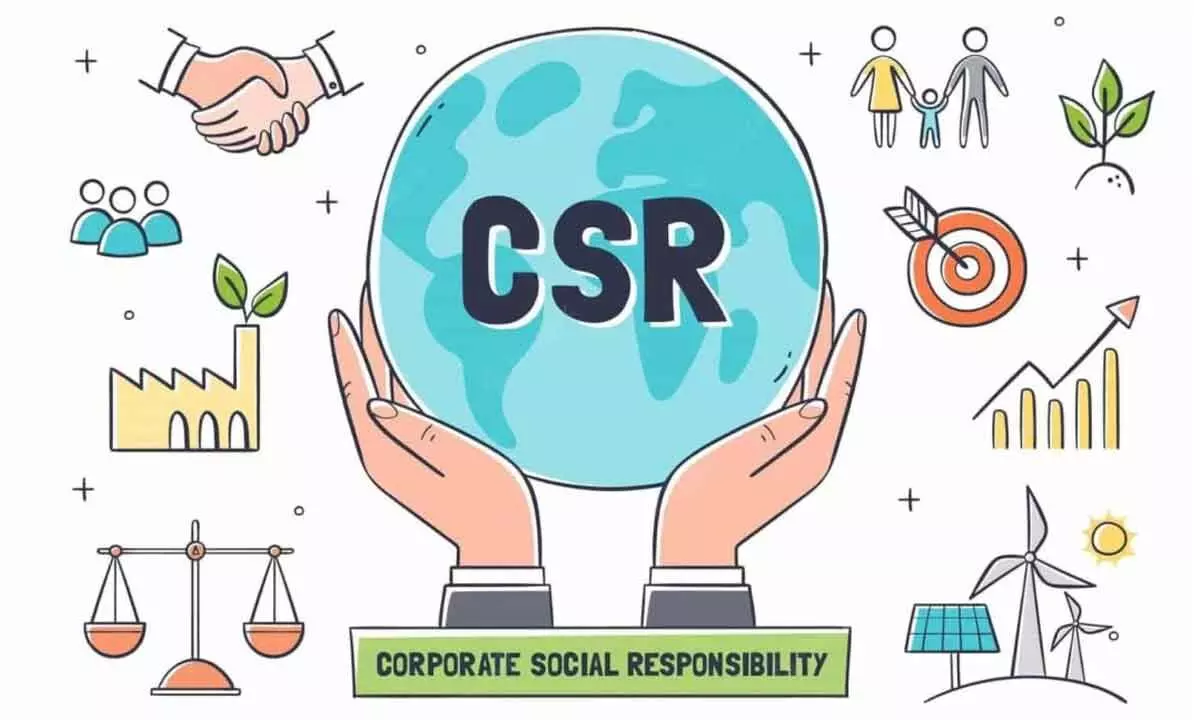Biz or benevolence? GAAR puts India’s CSR on trial
In this evolving business environment, the verdict may prompt companies to reevaluate their CSR approaches, potentially transforming the nature of corporate social responsibility within India
image for illustrative purpose

While GAAR's ruling throws a curveball at current corporate CSR practices, it also serves as a catalyst for critical discussions about the true intention and impact of CSR in India. The legal battle between Adama India Pvt Ltd and GAAR has reignited the debate about whether mandatory CSR activities should be considered 'business' expenses eligible for tax benefits
Gujarat Authority for Advance Ruling (GAAR) ruled that mandatory CSR activities do not qualify as 'business' activities under GST laws, making them ineligible for input tax credit under the CGST Act. In a groundbreaking legal battle, Adama India Pvt Ltd challenged the GAAR, sparking a debate that could redefine the intersection of Corporate Social Responsibility (CSR) and taxation in India. This case represents a pivotal moment in the evolution of corporate obligations and financial duties, potentially reshaping how companies in India navigate the complexities of CSR expenditures and their tax implications.
The Evolving Landscape of CSR
The case between Adama India Pvt Ltd and GAAR is more than a tax dispute; it's a reflection of the changing dynamics of corporate responsibilities in India. As the legal proceedings unfold, the corporate world watches with bated breath, anticipating the implications this verdict might have on CSR and taxation policies.
The Legal Framework
India's approach to CSR is distinctive. Under the Companies Act 2013, certain businesses are required to allocate a portion of their profits to CSR activities. This law blurs the line between voluntary social contributions and mandatory business expenses, creating a unique legal environment for CSR in India.
GAAR’s Stance on CSR Activities
The Core Issue: Adama India Pvt Ltd, a leading agrochemical company, approached GAAR for an advance ruling on whether expenses for mandatory CSR activities could qualify for input tax credit (ITC) under the CGST Act, as part of business expenditures.
GAAR’s Verdict: GAAR ruled that mandatory CSR activities, as per the Companies (CSR Policy) Rules 2014, fall outside the normal business operations of the applicant. Therefore, these activities are ineligible for ITC under Section 16(1) of the CGST Act. GAAR's decision hinges on the interpretation that mandatory CSR does not constitute a 'business' activity under GST laws.
Legal and Financial Repercussions
This ruling means that companies cannot claim ITC for expenses related to mandatory CSR activities. This interpretation could significantly impact businesses, especially those with substantial CSR commitments.
Broader Corporate Impact
The decision also raises questions about the broader purpose of CSR activities. If CSR expenses are not eligible for ITC, it could influence how companies select and prioritize their CSR initiatives, possibly moving away from activities not aligned with business interests.
Impact on CSR Activities
There's a growing concern about how this ruling could affect the nature of CSR activities in India. If CSR expenditures are not recognized for ITC, companies might lean towards projects more closely aligned with their business interests, potentially moving away from pure philanthropy.
Setting a Precedent
This legal challenge by Adama India Pvt Ltd could set a significant precedent for the treatment of CSR expenses under GST law. A favorable ruling for the company could encourage other businesses to claim ITC on their CSR spends, leading to major shifts in corporate financial strategies.
(Rusen Kumar is the founder and Managing Director of IndiaCSR.in, Largest CSR Media on Corporate Sustainability and Responsibility)

